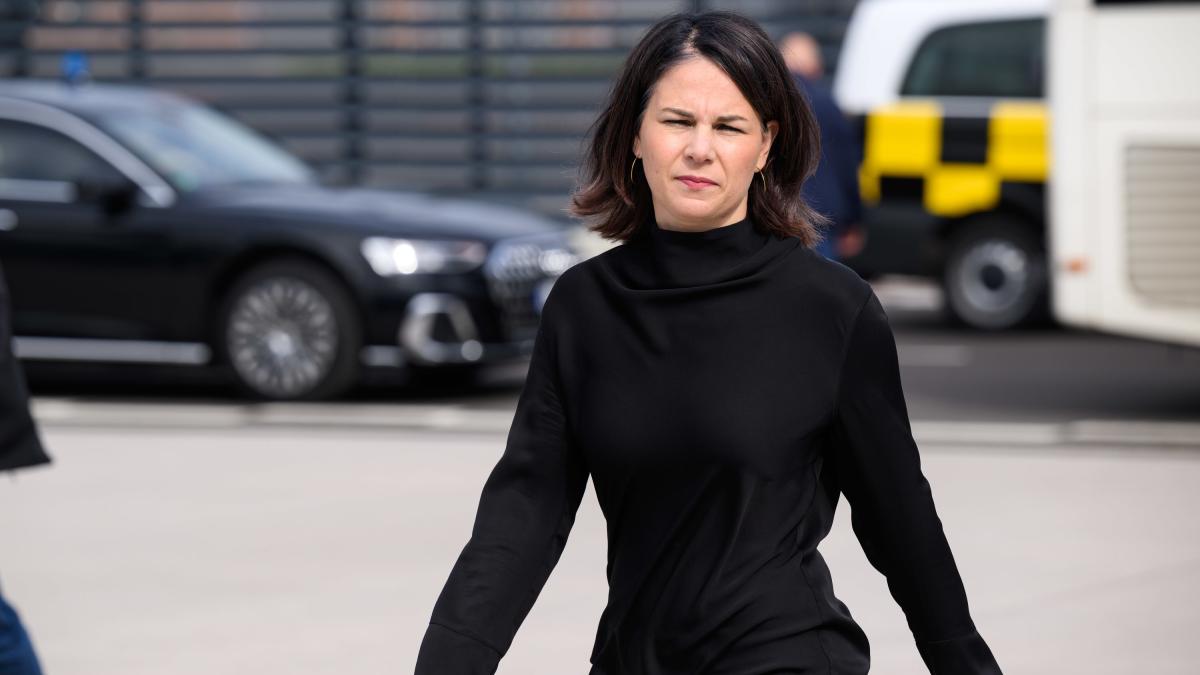Annalena Baerbock: A Journey in Politics and Diplomacy
Table of content
Early Life
Political Beginnings
Green Party
Foreign Affairs Ministry
Environmental Diplomacy
Challenges and Criticisms

Early Life:
Annalena Baerbock, a prominent figure in German politics, was born on December 15, 1980, in Hanover, Germany. Raised in Lower Saxony, Baerbock's early years laid the foundation for a career marked by political acumen, dedication, and a commitment to public service.Political Beginnings:
Baerbock's journey into politics started with a deep-seated passion for environmental and climate issues. She studied political science and public law at the University of Hamburg, where she further developed her understanding of global challenges and the role of government in addressing them.Her commitment to environmental advocacy became evident early in her career. Baerbock worked for the Alliance 90/The Greens parliamentary group in the Bundestag and later as an advisor on foreign and security policy. This period marked the beginning of her influence on policy matters, particularly those related to environmental sustainability and international cooperation.
Rise in the Green Party:
Annalena Baerbock's affiliation with the Green Party played a pivotal role in shaping her political trajectory. She became a member of the Greens in 2005 and quickly rose through the party ranks. Baerbock's dedication to ecological sustainability, social justice, and progressive values aligned with the party's core principles.Over the years, she assumed various roles within the Greens, showcasing her leadership skills and contributing to the party's policy development. Baerbock's commitment to environmental policies and her ability to articulate a vision for a sustainable future distinguished her within the party and the broader political landscape.
Foreign Affairs Ministry:
Baerbock's political ascent reached new heights when she assumed the role of Germany's Minister for Foreign Affairs in 2021. Her appointment to this crucial position signified not only personal achievement but also a broader recognition of the importance of environmental and foreign policy intersections.As Minister for Foreign Affairs, Baerbock navigated Germany's diplomatic engagements with a focus on addressing global challenges. Her approach was marked by a commitment to multilateralism, cooperation, and sustainable development. Baerbock emphasized the need for a comprehensive foreign policy that considers environmental issues, human rights, and global stability.
In the face of pressing international challenges, Baerbock played a key role in shaping Germany's responses. Whether addressing climate change, human rights abuses, or geopolitical tensions, she brought a holistic perspective to foreign affairs, recognizing the interconnectedness of global issues.
Environmental Diplomacy:
One of the defining aspects of Baerbock's tenure as Minister for Foreign Affairs was her emphasis on environmental diplomacy. Leveraging her background in environmental advocacy, she positioned Germany as a leader in addressing climate change on the global stage.Baerbock actively participated in international climate negotiations, advocating for ambitious targets and collective action. Her role in pushing for stronger environmental commitments underscored the importance of aligning foreign policy with the urgent need for climate action.
Under her leadership, Germany reinforced its commitment to the Paris Agreement and worked collaboratively with other nations to advance sustainable practices and policies. Baerbock's approach to environmental diplomacy reflected a recognition of the role that nations play in addressing shared challenges that transcend borders.
Challenges and Criticisms:
While Baerbock's tenure as Minister for Foreign Affairs garnered praise for its emphasis on sustainable and comprehensive foreign policy, it was not without challenges and criticisms. Navigating the complexities of international relations, geopolitical tensions, and evolving global dynamics presented inherent challenges.Critics raised concerns about Germany's role in specific geopolitical situations, and Baerbock faced scrutiny for policy decisions and diplomatic strategies. As with any political leader, the balancing act of addressing diverse interests and navigating the intricacies of foreign affairs required resilience and adaptability.